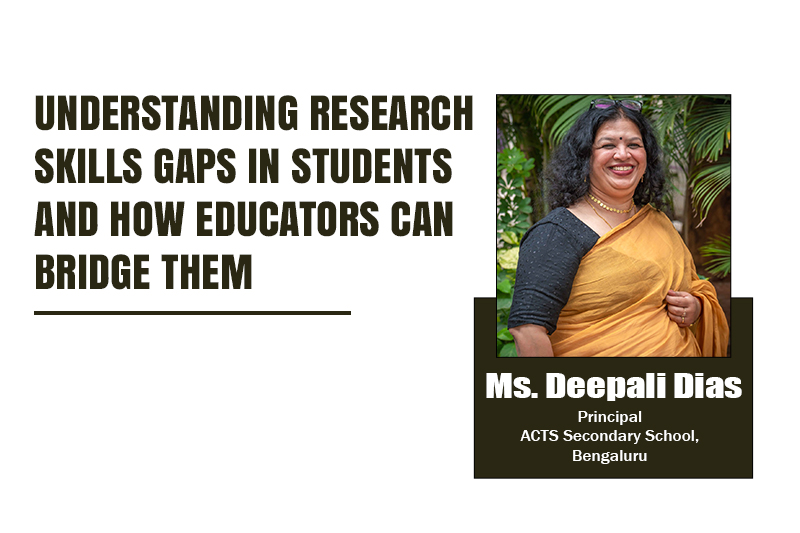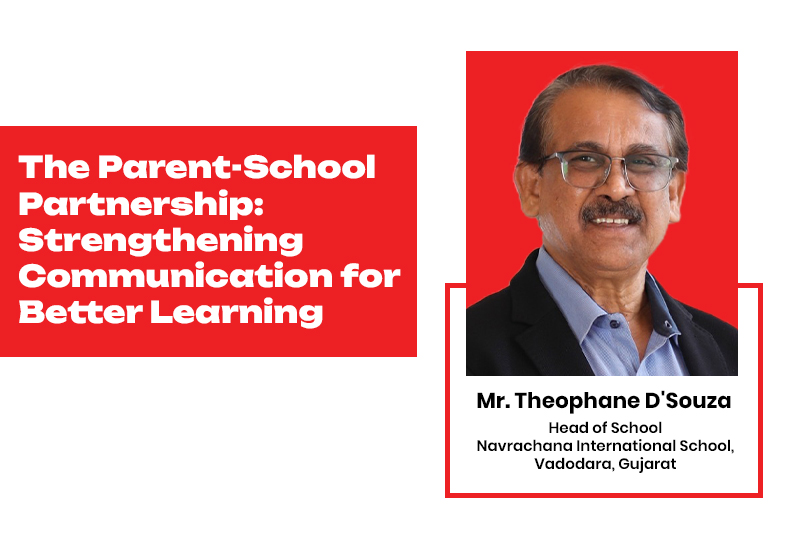Dr. Vidya Sravanthi, Reqelford International School, Hyderabad: Balancing Academic Freedom & Cancel Culture in Schools
“True education thrives not in silence, but in the courageous conversation between freedom and empathy.”
In today’s rapidly evolving educational landscape, few dynamics are as complex and critical as the interplay between academic freedom and cancel culture.
Dr. Vidya Sravanthi, Director and Principal of Reqelford International School, brings to this conversation her three decades of educational leadership and a deep personal commitment to empowering young minds with both knowledge and empathy.
With a Doctorate in English Literature, a Master’s in Education, and a legacy of founding institutions such as St. Peter’s Model School, UK College of Education, and Microfin Ltd (for women’s empowerment), Dr. Sravanthi is uniquely positioned to offer insight into the social shifts shaping how students engage with identity, ideas, and discourse today.
Why Academic Freedom Still Matters
At its core, academic freedom is the lifeblood of meaningful education. It allows educators to introduce new perspectives, challenge existing paradigms, and encourage learners to engage critically with content.
Students, in turn, are empowered to:
- Ask difficult questions
- Explore diverse viewpoints
- Cultivate independent thought
These are the very skills that define global citizens in a pluralistic society. However, this freedom is being tested in real time by a cultural force reshaping discourse across the world.
Cancel Culture: Accountability or Intolerance?
Cancel culture—a term now ubiquitous, often emerges from the realm of social media. At its best, it demands accountability. At its worst, it becomes digital shaming or ostracism for expressing views that may be perceived as politically incorrect or offensive.
This trend can be particularly problematic in school settings, where young minds are still forming their understanding of context, nuance, and empathy.
Dr. Sravanthi recalls an instance in her school where a student faced subtle social isolation after sharing a well-researched but unpopular opinion. There were no loud confrontations—just a chilling silence from peers and a notable drop in academic confidence.
“What was most heartbreaking,” she shares, “was that the student didn’t regret the idea, but regretted speaking up at all.”
The Modern Paradox: Free to Speak, Afraid to Speak
This is the paradox of our times: students today are more vocal and engaged than ever, which is undeniably positive. But without proper guidance, this engagement can become rigid—excluding rather than embracing intellectual diversity.
Dr. Sravanthi explains that we must teach students how to think, not just what to think. In doing so, schools must uphold both freedom of thought and emotional safety, fostering a culture where curiosity and compassion coexist.
How Reqelford Is Bridging the Divide
At Reqelford International School, this balance is actively pursued:
- Digital citizenship and ethical communication are taught from early grades.
- Debate clubs and peer-led forums allow diverse ideas to be expressed in a structured, respectful way.
- Workshops on online behavior train students to understand the real-life implications of their digital footprint.
“The digital space is where a lot of cancel culture originates,” notes Dr. Sravanthi. “So we must start teaching children how to navigate that space with care and wisdom.”
At Reqelford, students learn that freedom of speech isn’t freedom from consequence and that disagreement doesn’t require dismissal. They are encouraged to challenge ideas, not people—a critical distinction in building civil discourse.
From Critique to Compassion
Dr. Sravanthi acknowledges that cancel culture stems from a desire for justice. But when weaponized, it contradicts the purpose of education—to open minds, not close them.
Instead of taking extreme positions, schools must strike a delicate balance:
- Encourage free expression
- Set boundaries through empathy
- Promote meaningful critique, not cancelation
This equilibrium is not a rule—it’s a culture, one that must be continuously nurtured through honest dialogue, teacher training, and clear modeling of values.
Raising Thinkers, Not Echo Chambers
Dr. Sravanthi believes that preparing students for the real world includes preparing them to:
- Listen as much as they speak
- Question without condemnation
- Stand up for values while remaining open to growth
“We are raising future leaders, thinkers, and change-makers,” she says. “And true leadership requires the courage to question and the humility to listen.”
In an age of polarization, this approach is not a luxury—it’s essential. Schools like Reqelford are leading the way by transforming classrooms into safe, inclusive arenas for courageous conversations.
Final Thoughts
Cancel culture isn't something to dismiss or fear outright. Nor is academic freedom an excuse for insensitivity. The key lies in guiding young minds to balance freedom with empathy—a lesson more relevant now than ever before.
Because the future belongs to those who can navigate complexity with clarity, courage, and compassion—and that journey starts in the classroom.
Want more thought-provoking articles like this? Check out EducationToday – where education meets innovation.






